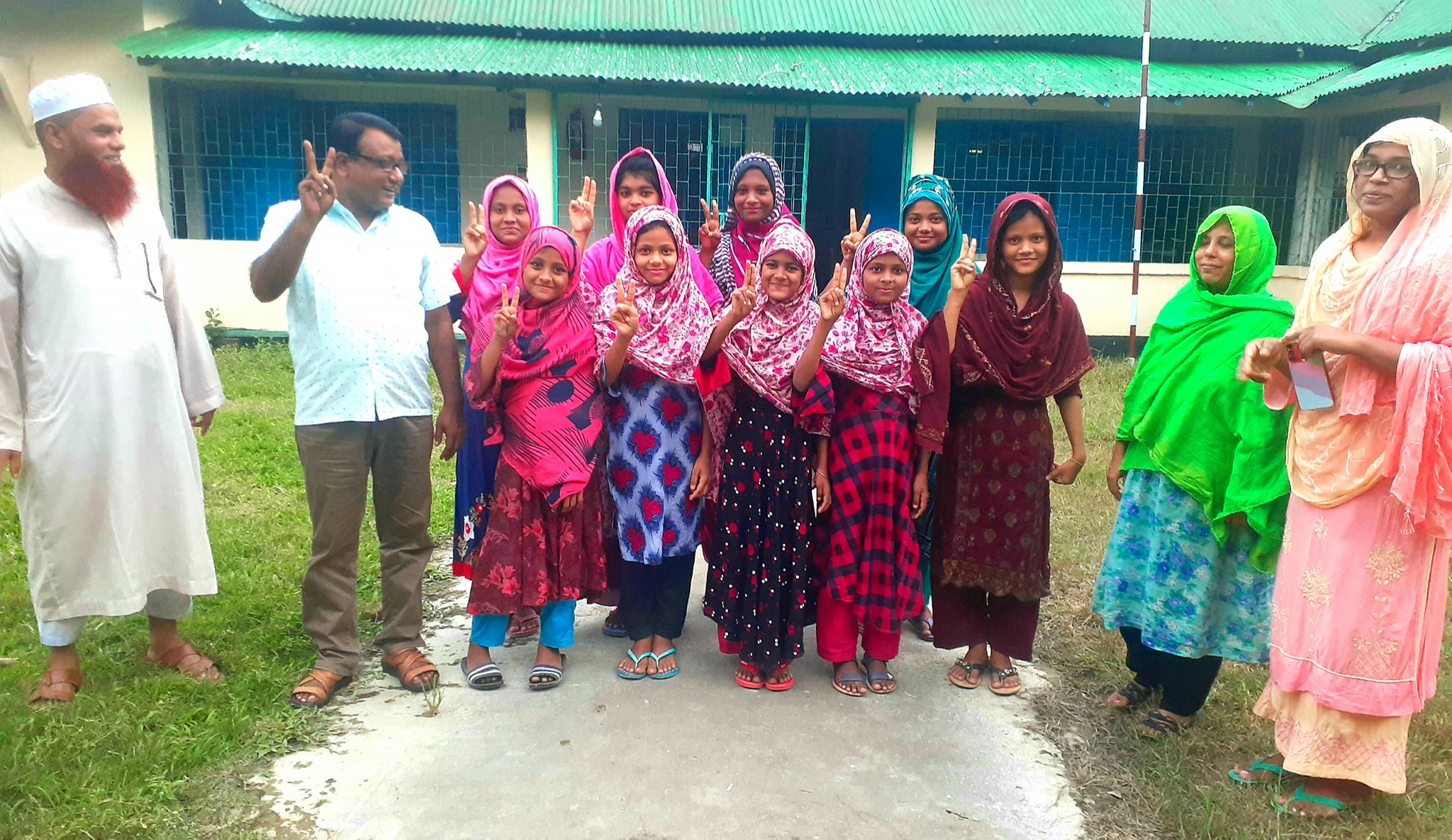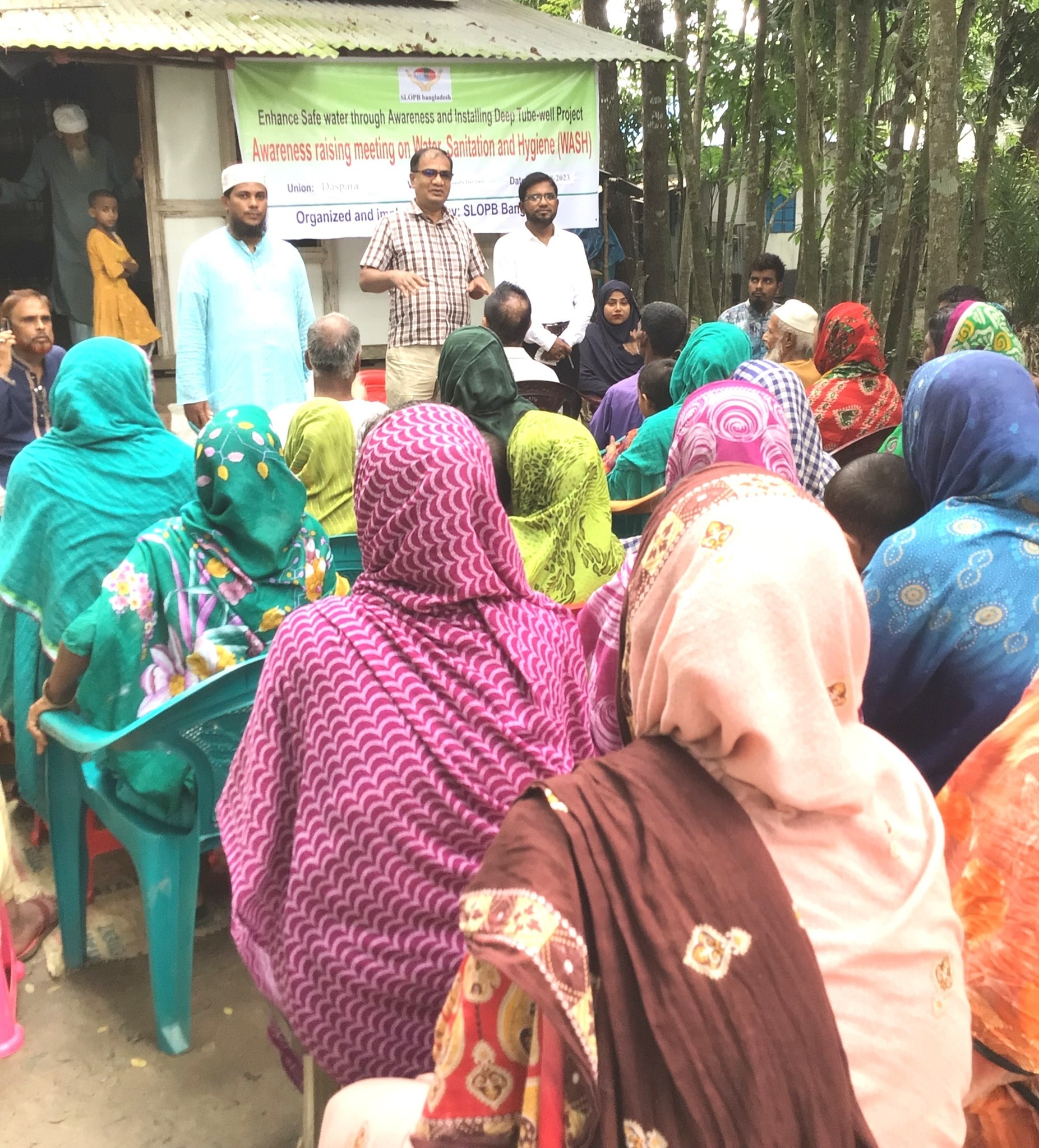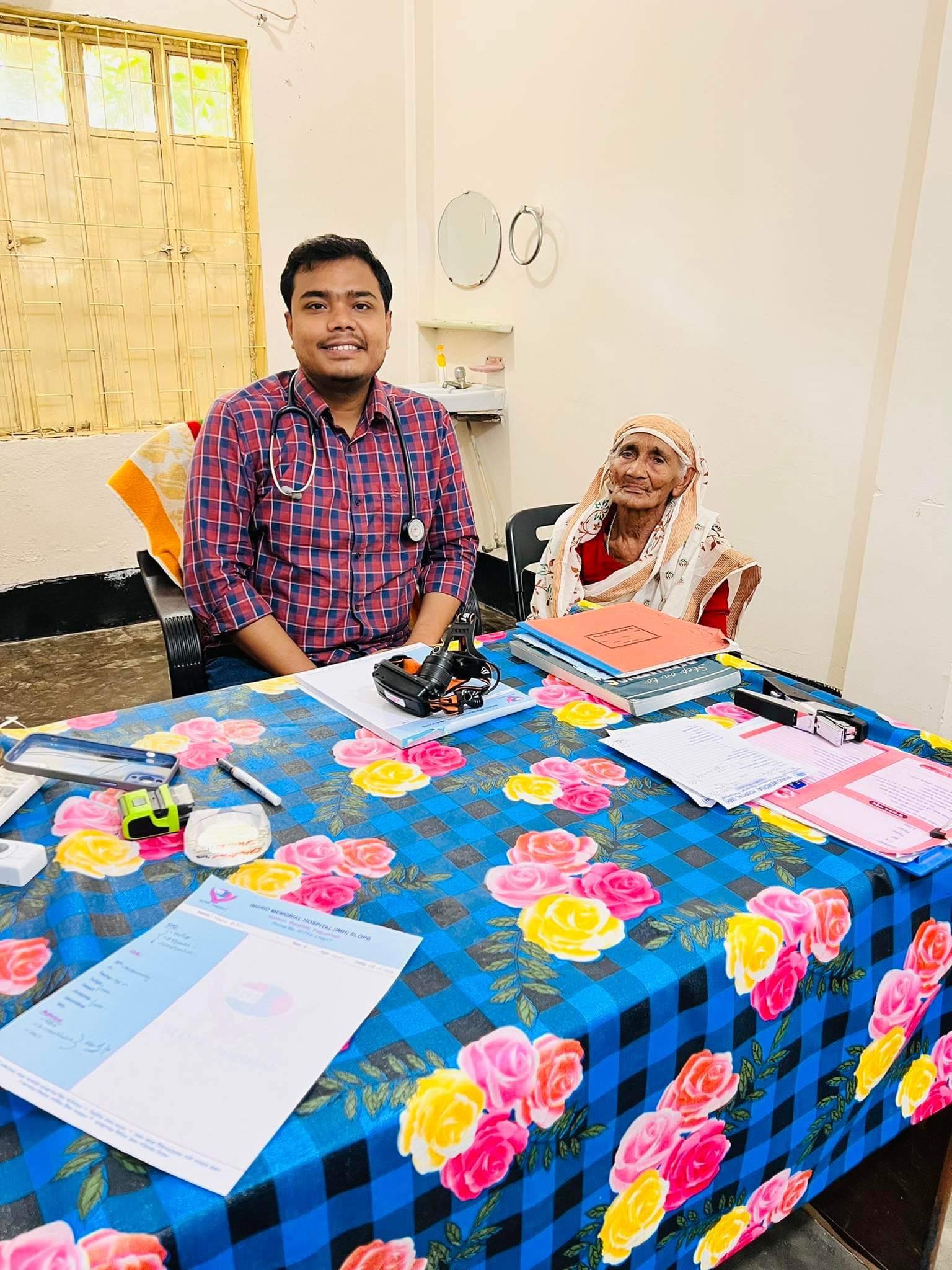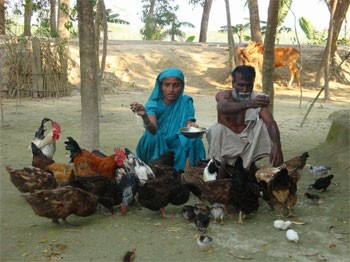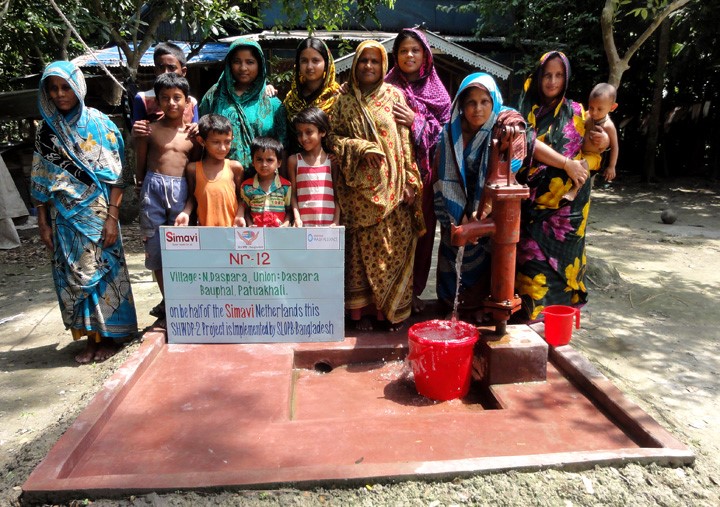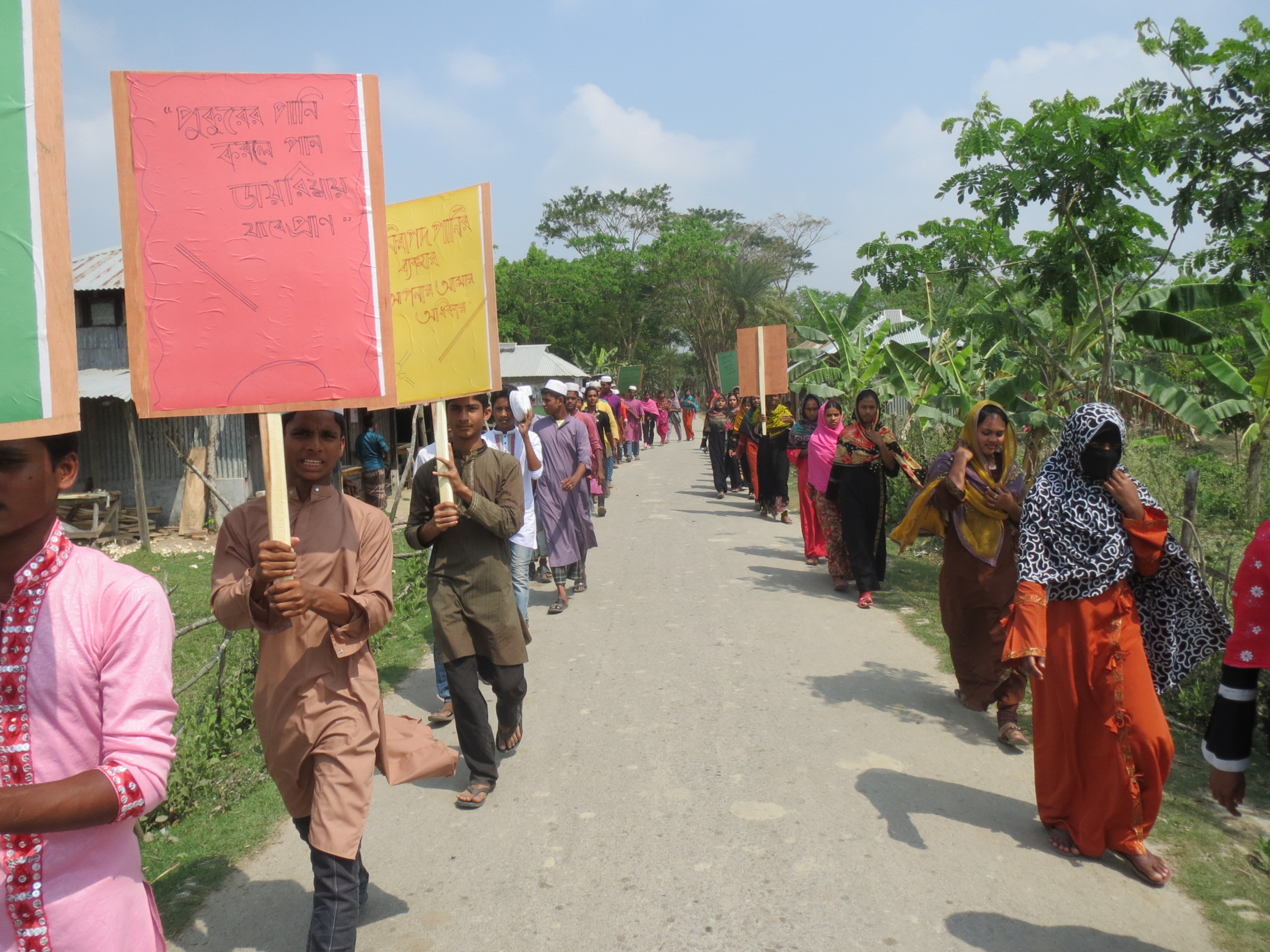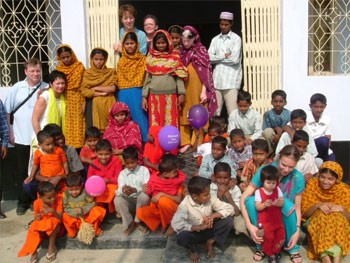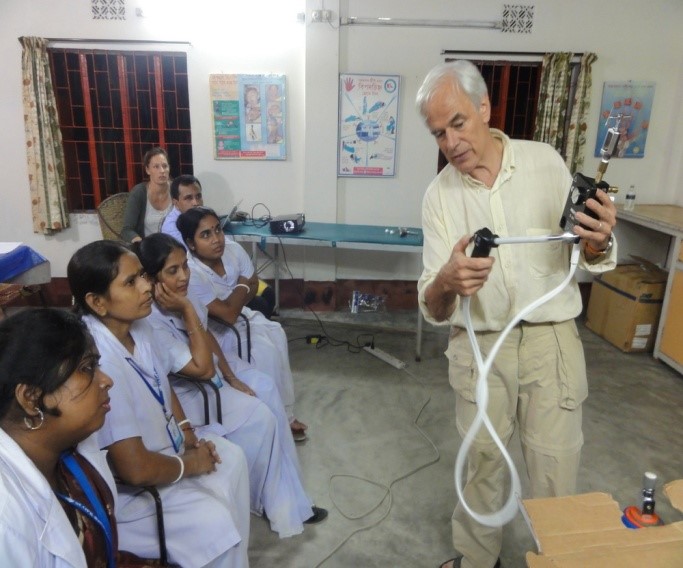WASH SDG-WAI Consortium Programme (Contributing to achieve Goal-6 of the SDG)
.jpg)
Stichting Land Ontwikkelings Project Bangladesh (in short SLOPB Bangladesh) is a non-government international organization working in the coastal belt of Bangladesh since 1995 with greater passion and enthusiasm for sustainable development of the community living in the coastal area of Bangladesh. SLOPB Bangladesh has been working on the Simavi funded WASH SDG-WAI Consortium Programme (contributing to achieve Goal-6 of the SDG) that is being implemented in Barguna district in Barishal division (3 Unions of Barguna Sadar Upazila and 1 Union & 1 Pourashava of Betagi Upazila).
Manpower/Staffs detail of the WASH SDG-WAI Consortium Programme under SLOPB Bangladesh:
| Sl No. | Positions | Female | Male | Total |
|---|---|---|---|---|
| 1 | ED/Director | 0 | 1 | 1 |
| 2 | Project Manager (PM) | 0 | 1 | 1 |
| 3 | Finance and Admin Officer | 0 | 1 | 1 |
| 4 | Monitoring and Evaluation Officer (M&EO) | 0 | 1 | 1 |
| 5 | Project Officers (PO) | 3 | 0 | 3 |
| 6 | Service Staffs (SS) | 0 | 1 | 1 |
| 7 | Cleaner | 1 | 0 | 1 |
| Total | 4 | 5 | 9 |
Project duration:
The project started in September 2020 under Phase II and will continue till March 2024 as a costed extension period.
Goal of the project:
Ensure sustainable management and access to safe water and sanitation for all contributing to achieving Goal-6 of the SDG by 2030.
.jpg)
Objective of the project:
• Improve demand and use of Equitable & Sustainable services.
• Increase participation of women & socially excluded.
• Improved Public sector Sustainable and WASH Equitable Service Delivery & Governance.
• Improved Private Sector Sustainable & WASH equitable Service delivery.
.jpg)
.jpg)
.jpg)
Major activities of the project:
• Creating and updating social maps.
• Preparing Half-yearly/annual project implementation plan.
• Project Awareness Meeting at Municipality/Upazila/Union Level.
• Quarterly project coordination meeting at municipality/upazila/union level.
• Monthly Staffs meetings on project progress and next month's planning.
• Local leadership training on WASH.
• Women's leadership training on WASH.
• Training on tube-well repairing and maintenance for repairmen.
• Regular meetings with Ward WASH Committee.
• Regular meetings with the Municipal WASH Standing Committee.
• Regular meetings with the Citizens (Civil Society Organization-CSO) Committee.
• Quarterly meeting with School Management Committee.
• Quarterly meeting with School Brigade.
• Quarterly meeting with the school management committee and teachers on MHM and hygiene.
• Quarterly Advocacy Meetings with Local Governments to Ensure Participation of Women and Backward Classes.
• Quarterly meetings with local government on various development issues related to WASH.
• Quarterly Coordinating Meeting with the TLCC to review and plan the progress of various development related to WASH.
• Quarterly meetings with local microfinance institutions
• Formation of a committee/association consisting of sanitation entrepreneurship and regular quarterly meetings.
• Creation and use of wash desk in local government (union/municipality) office.
• Meetings to raise awareness about the rights of women, people with physical or mental disabilities, and backward communities.
• Celebrating different days (World Water Day, Hand Washing Day, Environment Day, World Toilet Day, Sanitation Month, World Women's Day, Independence Day, Victory Day)
.jpg)
Expected results:
• Understand that at the community level, families will be able to afford and afford to buy sustainable water, sanitation, and hygiene products.
• Understand at the community level how to take care of men, women, children, adults, and others (physically and mentally handicapped) and their families by adhering to their own and environmentally sound rules with the opportunity to become competent.
• At the community level, people with disabilities and privileges, especially women, people with disabilities, and other disadvantages, will be aware of their rights and will be interested in making decisions about washing in the family, society, and local government. At the community level, men/people and boys will be able to perform various family responsibilities (work) in their family, look after small children and sick people, collect water, etc.
• About 50,000 members of 5,000 families of Gaurichanna, Fuljhuri, and Badarkhali Unions and Betagi Municipality of Sadar Upazila of Barguna District will get a safe water supply.
• Will come under an improved sanitation system and practice for cleanliness.
• Increase knowledge and skills in public reproduction, health care, safe motherhood, infant mortality, malnutrition, water, toilet and hygiene, and quality of life development.
• The other service providers that are available will help in formulating poverty-centric policies for the provision of rights-based services and increasing investment in community-managed sustainable water, sanitation, and hygiene.
• The implementation of the project will increase community clinic services among the poor Establish potable water sources, sanitary toilets, and open defecation. Hygiene care, hygiene practices for school children, through which health development happens, which will ensure safe water and hygienic toilets for all as per the national plan and will act as part of hygiene care.
Issue and expected change:
| Sl No. | Issues | Expected change | Remarks |
|---|---|---|---|
| 1 | Budget allocation for safe water, sanitation, and hygiene (WASH) and integrated water resources management is low considering the needs of the underprivileged. | Budget increase in safe water, sanitation, and hygiene (WASH). Integrated water resources management . | |
| 2 | Most of the wash budget allocated to the unions declared open budgets are not good for the quality of safe water, sanitation and hygiene services for the poor. | Discussions with various service providers. Citizens Committee Meeting |
|
| 3 | At the union / upazila / municipality level, the participation of women and the backward classes of the society in the various wash committees is low. | The agenda of the meeting included issues related to women and the backward classes of society. Motivate members through personal communication. |
Major significant Achievements (Up to March 2024):
- 95,501 people get awareness about WASH
- 224 CBOs formed (Mother, Adolescent, Youth, WASH Monitoring , WASH Entrepreneur, WASH Citizens Committee, Civil Service Organization)
- 188 women headed committees formed
- 19 MHM Corners established
- 9 women-friendly toilets constructed
- 52,985 people have been brought under safely and basic level water coverage (102%)
- 25,738 people have come under safely and basic level sanitation coverage (103%).
- 15,148 people have been covered under hand washing at a basic level ((94%).
- 5 WASH desks have been established
- 22 times conducted Pre budget meeting
- 16 times open budget public hearings completed by LGIs
- LGIs have invested BDT 20,62,83,700 in the WASH sector
- The community has invested BDT 10,86,34,974 in the WASH sector
- Schools have invested BDT 24,42,900 in the WASH sector.
- Health Clinic has invested BDT 3,35,200 in the WASH sector.
- School absenteeism for girl's students has reduced from 38% to 5%.
